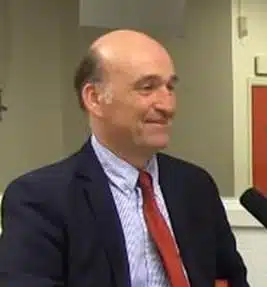

Invited Speaker
Dr Alexander Dill
World Social Capital Monitor
Certificate of attendance available
Click here to see the Live Scoring from during the event on April 29th 2022
The short history of measuring Social Capital included two forms of measurement:
- The operationalization of aggregated data e.g. on voluntarism, voting and memberships in groups
- Household questionnaires providing a maximum of correlation factors such as the SOCAT of the World Bank
Open access=social inclusion: since 2016, the World Social Capital Monitor allows citizens to score eight local social goods in 50 languages on any Mobile anonymous without registration. The survey includes the offer to have a qualitative say and to choose a ZIP, district or even village.
The participants of our Webinar are though invited to:
- Test the application by themselves: https://trustyourplace.com/
- Browse the results from 2021
The Webinar will include a joint live-demonstration of the survey and the discussion of the last twenty results provided by the participants.
About the presenter:
PhD Alexander Dill studied Sociology at the Free University of Berlin. After spending years in Advertising and Software, in 2007 he published his first study on the value of non-material assets at the Institute of Elinor Ostrom: https://dlc.dlib.indiana.edu/dlc/bitstream/handle/10535/4548/Towards_a_Global_Freeware_Index.pdf?sequence=1
When Elinor Ostrom (1933-2012) became Nobel Laureate in 2019, Dill founded the Basel Institute of Commons and Economics www.commons.ch .
He published many books and studies on Social Capital. Since 2016, the World Social Capital Monitor is a UN SDG Partnership Project. Since 2017, Dill contributes to the UN Inter Agency Task Force on Financing for Development.
His policy paper on Public Goods ranks at the top in Google when you type “SDG Public Goods”.
About Our Webinar Series
This event is part of our regular webinar sessions for social capital researchers including PhD/master students. These sessions include invited presentations from prominent scholars as well as presentations by PhD students and experts in professional practice.
For social capital researchers, these sessions are an opportunity to hear about the latest social capital research and insights from scholars working on the concept. They can be a great way to connect with people, to get advice, discuss ideas or issues, get suggestions for literature to read, or you can just listen.
Are you researching social capital and want to present your research? Click here for more information and to submit a proposal.
Generally, presentations can be 20 to 30 mins. The content of your presentation will depend on your research stage.

